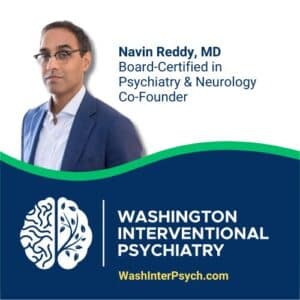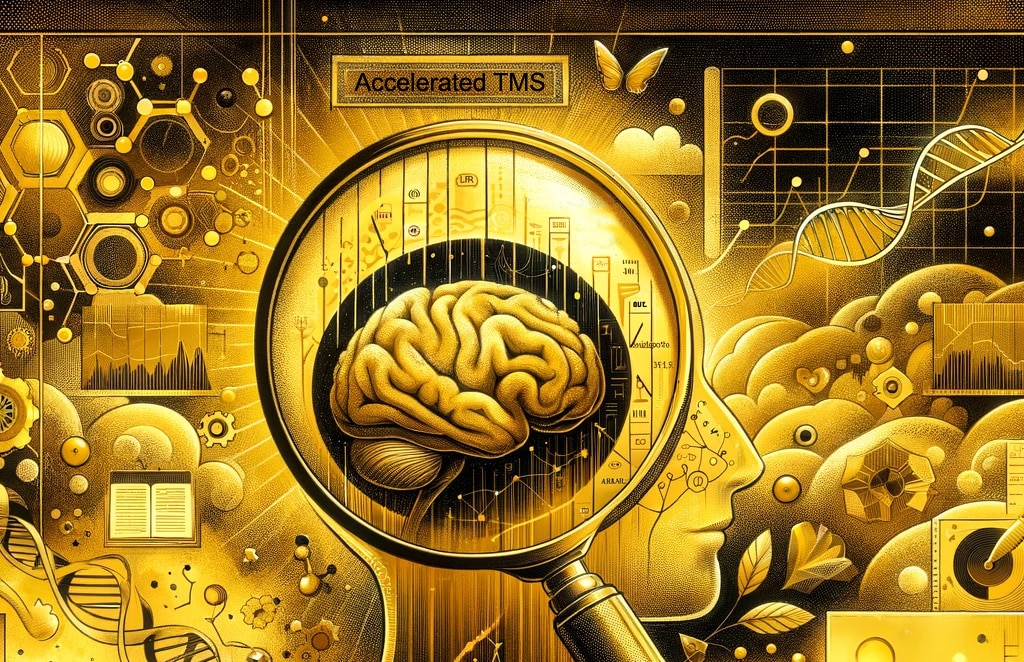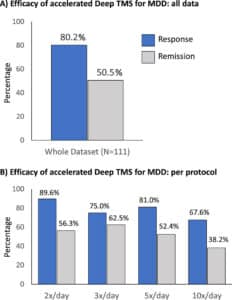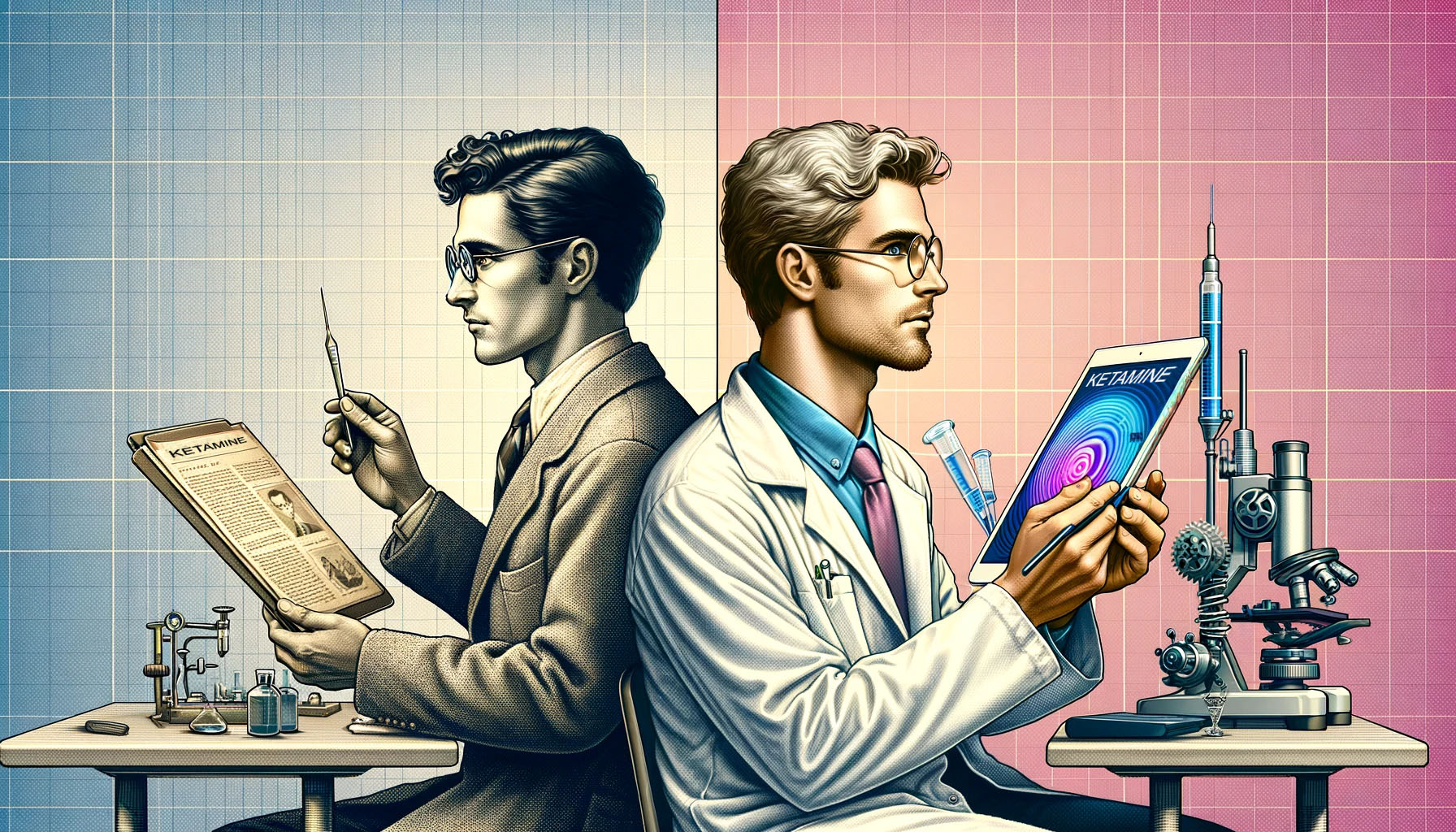For those suffering from the burden of major depressive disorder, relief through traditional medication or psychotherapy may seem frustratingly distant or ineffective. However, an innovative intervention, Accelerated Transcranial Magnetic Stimulation (TMS), has emerged with compelling research and promising outcomes for rapid alleviation of depressive symptoms.
In this WIP Dr’s Blog, we’ll shed some light on the severity of depression and why effective treatment options like accelerated TMS are proving beneficial.
What is Considered Major Depression?
Before we dive into the nuances of Accelerated TMS, it’s important to understand the severity and scope of major depression.
A mental health disorder that affects an individual’s mood, behavior, and overall sense of well-being, major depressive disorder can manifest through a complex interplay of symptoms. These can include overwhelming feelings of sadness, loss of interest in previously enjoyed activities, changes in appetite or weight, difficulty sleeping or oversleeping, physical slowing or agitation, fatigue or loss of energy, feelings of worthlessness or excessive guilt, and recurrent thoughts of death or suicide. These symptoms persist for two weeks or more and cannot be otherwise explained by either medical or substance-related (alcohol, nicotine, etc.) causes.
To learn more about depression, we included a video from Mayo Clinic:
Medical advancements have helped improve treatment options for those who struggle with this debilitating mood disorder. Yet, for many individuals, first-line treatments for depression, such as medications and cognitive behavioral therapy alone, have failed to provide adequate and consistent relief from their chronic depressive symptoms.
The good news is that there are proven, drug-free treatments, such as transcranial magnetic stimulation (TMS), that can be part of the discussion from the start.
How Does Accelerated TMS Therapy Differ from Traditional TMS?
Since 2010, the American Psychiatric Association has recommended TMS as a second-line treatment for adult patients with depression who have not benefited from initial antidepressant medication. And in 2022, the TMS field saw the first Food & Drug Administration (FDA) clearance for a unique form of accelerated TMS as a tool for treatment resistant depression.
Unlike traditional transcranial magnetic stimulation (TMS) or Repetitive TMS (rTMS), which typically require daily sessions for several weeks, accelerated TMS (aTMS) involves multiple sessions per day over a shorter period of time, usually a few days to one week.
Accelerated TMS therapy uses high-intensity repetitive magnetic pulses that focus on stimulating areas such as the prefrontal cortex associated with executive function, emotion regulation, and reward systems. This non-invasive stimulation can help regulate mood and reduce symptoms of depression.
How Can Accelerated TMS Treatment Benefit Individuals Suffering From Depression?
Multiple studies support the efficacy of aTMS for depression. In a recent study published in ScienceDirect, data was collected from 145 individuals with treatment-resistant major depression. The study found that accelerated Deep TMS with the H1 coil has an 80% response and 51% remission rate, and the six-month durability of accelerated Deep TMS is 93%.
Overall, expert-backed research on aTMS is showing that its potential benefits include:
- More rapid improvement of depressive symptoms – in as little as 1-4 weeks
- Higher remission and response rates than conventional TMS protocols
- An option for those not improving sufficiently on medications
- A non-invasive intervention without systemic side effects
- Positive impact on daily functioning and productivity
- Convenience of shorter or less frequent treatment sessions
For the millions still struggling with depression, Accelerated TMS treatments may be the catalyst that finally brings individuals out of melancholic moods, allowing the enjoyment of a fulfilling life.
Don’t let depression control your life any longer.
While no single treatment can claim universal efficacy, the testimonies and clinical findings surrounding Accelerated TMS beckon patients to consider this novel approach with a newfound optimism.Discover the potential of accelerated TMS and take the first step toward consistent relief and improved quality of life. Contact Washington Interventional Psychiatry to schedule a free consultation.

About the Author: Dr. Navin Reddy, a Yale University School of Medicine-trained psychiatrist, is a Clinical Assistant Professor at George Washington and Howard University Hospitals. As a co-founder of Washington Interventional Psychiatry, he’s dedicated to transformative care. With expertise in complex cases, Dr. Reddy focuses on adults with challenging conditions, including hard-to-treat depression, bipolar disorder, anxiety, and substance addiction. Dr. Reddy is board-certified by the American Board of Psychiatry and Neurology.
About Washington Interventional Psychiatry (WIP):
Washington Interventional Psychiatry is located at 4325 49th Street NW, Suite 200, Washington, DC 20016. Our practice group is comprised of a dynamic team of seasoned clinicians who blend traditional medication strategies with evidence-based, rapid-acting treatments. From transformative options like Ketamine Intravenous Therapy, Esketamine Intranasal Therapy (Spravato), and Ketamine Assisted Psychotherapy (KAP) to accelerated TMS (Transcranial Magnetic Stimulation), our range of interventions is designed to complement or even replace conventional approaches. WIP isn’t just a clinic – it’s a beacon of hope for those seeking effective, rapid solutions to mental health challenges for adults and children. To learn more or to schedule a complimentary consultation, visit WIP’s website or call 202.525.5123.




